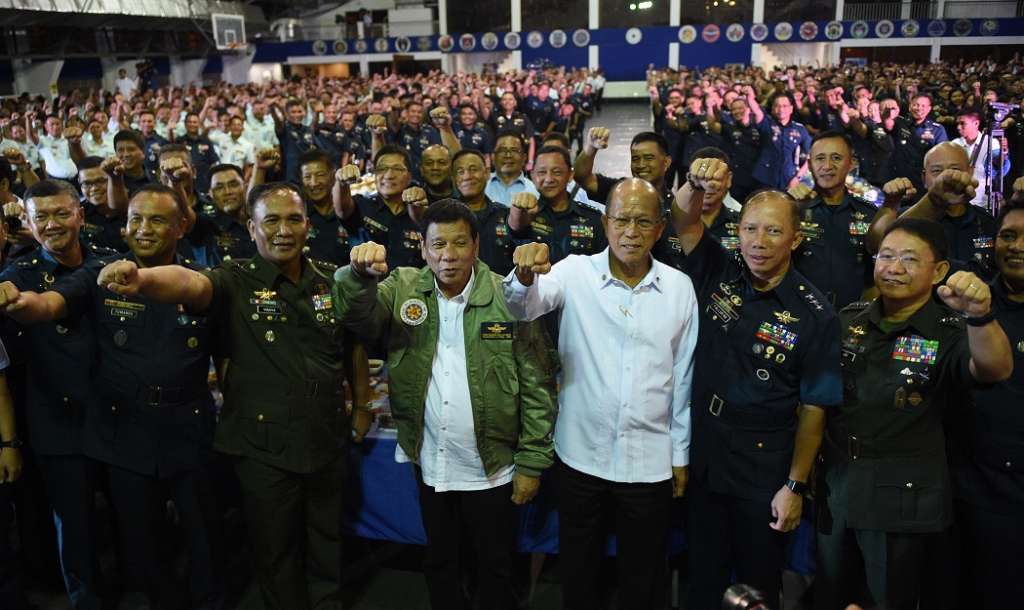Manila-The Philippines assured the United States Tuesday that it will honor its obligations as a military ally following volleys of profane tirades by unpredictable President Rodrigo Duterte, who earlier cursed U.S. President Barack Obama.
Duterte said he was “not a fan” of Washington and called on Monday for the small number of U.S. military advisers to leave the southern Philippines.
On Tuesday, Duterte also said Filipino forces would not participate in future joint patrols with the U.S. in the South China Sea, where Manila claims waters that China insists are part of its territory, despite an agreement struck by his predecessor just months ago.
However, top officials moved to stem the damage, saying that it was business as usual between the Philippines and its powerful ally, whose backing is essential as it jousts with China over the maritime dispute.
“There is no shift in so far as our policy is concerned with respect to our close friendship with the Americans,” Foreign Secretary Perfecto Yasay said.
The president’s spokesman also insisted that Duterte’s comments were providing context to the conflict in the south, not a reversal of policy.
“These were not directives to leave, but this was a context on why we have a conflict in Mindanao. In other words, he’s giving a broad historical, cultural landscape,” Duterte’s spokesman Ernesto Abella said.
Yasay, who was flying to Washington later in the day for talks, added the Duterte administration would honor existing defense agreements including a 2014 accord giving the U.S. military access to at least five Philippine bases.
One of the bases is located in the southern region of Mindanao, where the government is battling ISIS militants, who have offered allegiance to ISIS militants in the Middle East.
Duterte seemed to be scrapping a deal that the U.S. officials inked early this year with former Filipino President Benign Aquino III designed to counter China’s increasingly aggressive sovereignty claims in the heavily trafficked and strategic waterway.
Aquino had spent years pursuing closer defense ties with Washington and in 2014 Manila agreed to give U.S. forces access to several Filipino military bases.
In April, meanwhile, the Philippine Navy began joint South China Sea naval patrols with the U.S. as the Pentagon responded to muscular Chinese actions in the sea, including building artificial islands over disputed reefs.
By June, the Pentagon had also deployed warplanes and about 120 personnel to the northern Philippines for short-term training missions aimed at ensuring Filipino and U.S. access to the South China Sea.
